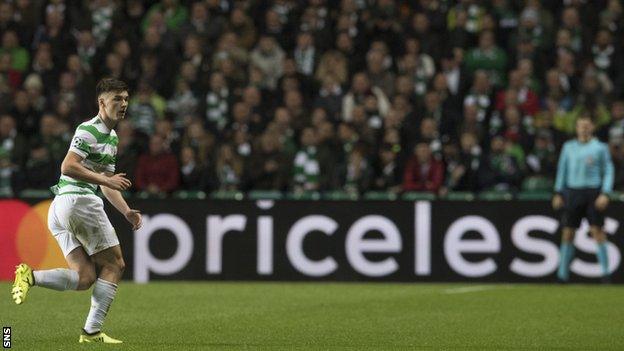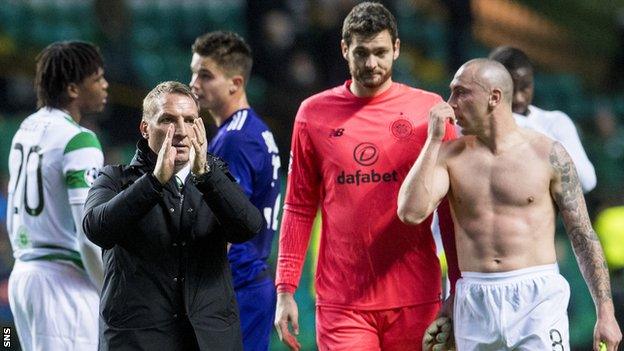Celtic: Record rise in revenue & profit following on-field success
- Published

Celtic played six Champions League group stage games this season, winning one and losing five
Celtic's on-field success under Brendan Rodgers contributed to a strengthening of the club's off-field figures.
The interim results to 31 December show an increase in revenue of 16.8% to £71.5m, and an increase in pre-tax profit from £18.6m to £19.5m.
"The board is committed to investment in the squad so as to be as competitive as we can within Scottish football and Europe," said chairman Ian Bankier.
Celtic do not expect the figures for the next six months to be as strong.
The club reached the Champions League group stage for the second year running, finishing third in a section that contained Paris St-Germain, Bayern Munich and Anderlecht.
Rodgers' team face Zenit St Petersburg in the last 32 of the Europa League, with the home leg next Thursday, 15 February.
Celtic made a profit on player trading of £500,000 following the sales of Gary Mackay-Steven and Saidy Janko, and the purchases of Olivier Ntcham and Kundai Benyu, as well as the loan agreement for Patrick Roberts.

Manager Brendan Rodgers has steered Celtic to seven trophies and two Champions League group stage qualifications
At the end of the half-year accounting period, Celtic had net cash at bank of £30.9m, up from £18.6m the year before.
"With our full support and encouragement, Brendan seeks to enhance the squad by the careful acquisition of quality players and the development of existing players and young talent coming up from our youth academy," said Bankier.
"The board is also pursuing initiatives to enhance the club's assets at Celtic Park, so as to aid our playing competitiveness, as in the case of the recent pitch improvements, and to develop and commercialise the space we occupy, as in the case of our recent planning application for a hotel, retail store and museum.
"The board's investment policy, nonetheless, recognises the uncertainty inherent in football, and our long-held strategy of operating a self-sustaining financial model.
"Looking forward, and entirely in line with our trading seasonality, we do not expect the same level of financial performance in the second half of the year. In this period we will play fewer home fixtures and revenue from European competition will be lower."